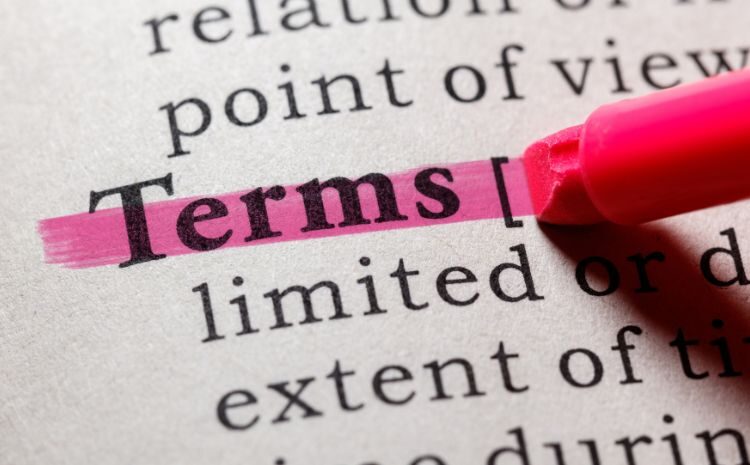
Renting 101: Common Rental Terms Explained by CSIA – Your Local Insurance Company
CSIA has been protecting renters for over 45 years, so, we know that renting a property can be a daunting process. It’s important to understand the terms and conditions of your rental agreement to ensure a smooth and successful tenancy. In this blog post, we’ll explain some common rental terms and provide definitions to help clarify what a rental lease entails.
Lessee and lessor
First, let’s define the two main parties involved in a rental agreement: the lessee and the lessor. The lessee is the person or entity who is renting the property, while the lessor is the person or entity who owns the property and is leasing it to the lessee.
Rent
This is the monthly payment made by the lessee to the lessor in exchange for the use of the property. The amount of rent is typically specified in the rental agreement.
Lease term
This is the length of time that the rental agreement is in effect. The lease term may be for a fixed period, such as six months or one year, or it may be a month-to-month agreement.
Lease Renewal
A lease renewal is the process of extending a rental agreement for an additional period of time. This is typically done when the original lease is about to expire and both the lessee and lessor agree to continue the rental arrangement.
Security Deposit
A security deposit is a sum of money paid by the lessee to the lessor at the beginning of the rental agreement. The purpose of the security deposit is to protect the lessor in case the lessee causes damage to the property or fails to pay rent. The security deposit is typically returned to the lessee at the end of the rental agreement, minus any deductions for damages or unpaid rent.
Utilities
Utilities are the services that are necessary to maintain the property, such as electricity, gas, water, and sewage. The rental agreement should specify who is responsible for paying for utilities.
Maintenance and repairs
The rental agreement should specify who is responsible for maintaining and repairing the property. The lessee is typically responsible for maintaining the property in a clean and habitable condition, while the lessor is responsible for repairs to the property.
Late fees
If the lessee fails to pay rent on time, the lessor may charge a late fee. The amount of the late fee and the terms for its assessment should be specified in the rental agreement.
Grace Period
A grace period is a set amount of time after the due date of a rent payment during which the lessee can still make the payment without incurring a late fee. The length of the grace period is typically specified in the rental agreement.
Eviction
Eviction is the legal process through which a lessor can remove a lessee from a rental property. This typically occurs when the lessee has breached the rental agreement, such as by failing to pay rent or causing damage to the property.
Termination
The rental agreement should specify the conditions under which the agreement can be terminated by either the lessee or the lessor. This may include the non-payment of rent, damage to the property, or other breaches of the agreement.
Holdover
A holdover is when the lessee continues to occupy the property after the rental agreement has expired. The terms for a holdover period should be specified in the rental agreement.
Decorating
Decorating refers to any changes or improvements that the lessee makes to the property during the rental period. This can include painting, hanging fixtures, or making other cosmetic changes. The lessee should check the rental agreement to see if there are any restrictions on decorating the property.
Pet Policy
A pet policy is a set of rules regarding pets in a rental property. The pet policy may include rules about the types of pets allowed, the number of pets allowed, and where pets are allowed on the property.
Rent Increases
Rent increases are when the lessor raises the monthly rent amount during the rental agreement. The rental agreement should specify the terms and conditions for rent increases, including the amount of notice required and the maximum amount of the increase.
Exclusive use
Exclusive use to areas of the property that are reserved for the exclusive use of the lessee, such as a private balcony or storage space. The rental agreement should specify which areas are reserved for exclusive use.
Habitability
The rental property must be fit for human habitation, which means it must be free from hazards and provide basic amenities such as running water and electricity. The lessee has the right to demand that the lessor make necessary repairs to maintain the property’s habitability.
Sublease
A sublease is when a lessee who has a rental agreement with a lessor rents out all or part of the property to another person. This is typically done with the lessor’s permission, and the original lessee is still responsible for the terms of the rental agreement.
Renters Insurance
Renters insurance is a type of insurance policy that covers the personal belongings of the lessee in case of damage or theft. It can also provide liability coverage in case someone is injured on the property. Renters insurance is typically not required by law, but it is highly recommended to protect the lessee’s belongings.
In conclusion, understanding these common rental terms is an important step in having a successful tenancy. As a local insurance company, we’re here to help and provide guidance on protecting your personal belongings with renters insurance. If you have any questions, don’t hesitate to contact us.



